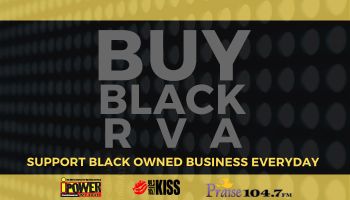In today’s “Money Mondays” segment, Mellody Hobson discusses loyalty programs.
Today on Money Monday we are talking about loyalty programs.
We are! Last week, Delta Airlines announced that it will change how its loyalty program members accrue rewards, and not only did it got a ton of coverage, but it got me thinking, and it has spurred me to talk to our listeners about the story of loyalty programs out there, whether they are frequent flyer programs or your local grocery store’s shopping program.
I have never really thought about these programs. Are they good to have?
We have to remember that they are called loyalty programs for a reason – the point is to lure people back and turn people into frequent customers who spend money, not help you save it. And this is why Delta announced the changes to its plan – it was over-rewarding customers. They are now going to focus on customers who spend the most money. So it is import to keep that in mind. But it is also important to break it down by how they create loyalty. Airline programs are very different from the one at your local pharmacy – and these differences really determine their value.
Break it down for us – the good, the bad and the ugly.
So here is the deal – the good, the bad and the ugly are really dependent upon how you are rewarded. But I will tell you up front that most of them are bad. However, it is possible to find a diamond in the rough, but they are rare!
Customer loyalty programs seek to hook consumers in different ways, from time-of-purchase discounts or buy-one-get-one deals, to future purchases and points accrual systems. The ONLY programs that are of any value to you are the ones where you save you money at the time of purchase – and these almost only occur at grocery stores or general goods stores and pharmacies. These are the good programs because the rewards are immediate.
Now the bad, and this is a large category. Any program that makes you spend money to save money, or spend money for future benefits, are the bad. Arguably the original loyalty program, the worst are the frequent flyer programs. The reason for this is because they are restrictive, future based rewards that almost always cost you more money in the long term, and this will continue to be the case as airlines consolidate. Delta’s announcement is an admission of that. The problem is that they are based on accruing thousands of miles – each of which is worth less than a cent –in order to MAYBE redeem them for an airline ticket in the future that many other people are competing for. Additionally, that ticket – or any other redemption of these miles – must be on that airline or their select partners. That is a LOT of restrictions. And beyond that, you will in most cases have to pay more for your next trip if you want to accrue those miles on that airline, rather than simply taking a cheaper flight! So unless you spend a LOT of time every year travelling, and you aren’t buying the ticket, you should consider your days as a frequent flier program member over. But this also holds for any program where you are accruing benefits that are restrictive and future based.
Finally, the ugly, or maybe the risky: Credit card benefits. Unlike the time of purchase benefits at the supermarket or the Walgreens, you aren’t immediately saving money. But unlike those frequent flier programs, if you are smart about it, and you are not restricted to a specific kind of purchase in most cases, and you might be able to get discounts on purchases or credits to your bill. Some cards also allow you to use your rewards points to pay for the annual membership fee or other fees associated with the cards themselves. However, this is all predicated on being responsible and paying your bill on time. As you have heard me say before, NO CREDIT CARD DEBT.
Beyond saving money, is there a reason for these programs?
For consumers, not really. This is where the frequent flier programs come back in to play. In their case, these programs are no longer about getting free travel, or even discounted travel, they are about achieving certain conveniences. Most of the major carriers have different tiers, which allow may allow you a separate check in line, it may allow you to choose a better seat or check a bag without having to pay for it, or some other convenience. But most of these conveniences are really only worth it if you are a business traveler, not if you are traveling for leisure and picking up the bill.
Ok, so what is the big takeaway here?
The bottom line, Tom? I am not a fan of loyalty programs. Sure, some loyalty programs can be good, but it really boils down to the effort and how they are rewarding you. In terms of saving money, you have to be careful in selecting the program. For immediate rewards, such as discounts at grocers, they are probably worth it if they are in your building or something and you are going back to the same place time and again. Beyond that, probably not. Do not sign up for rewards programs that make you spend more to save more, and don’t bank on future rewards. And always remember, every program out there is an effort to make you a loyal customer – so don’t sign up for one if you don’t like the company!
Loyalty Programs: The Good, the Bad & the Ugly was originally published on blackamericaweb.com
















